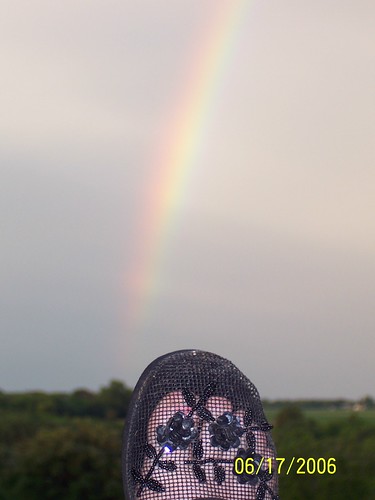Female Chauvinist Pigs and Thoroughly Rotten Morals
I'm reading "Female Chauvinist Pigs: Women and the Rise of Raunch Culture" by Ariel Levy right now, and it's really hitting on a lot of the things that have been bothering me lately.
I know I posted recently about the "Identifying" t-shirts women are wearing that bother me, as girls identify themselves as sexual or as some type of gender stereotype. I've also posted about how it feels as if the choice for women today is to be sexual, or to be labeled as repressed. The "freedom" of sexual choice has become the freedom ONLY to be sexual.
The book I'm reading is in line with a lot of the things I've been reading, but it also touches on a few other aspects of this subject as well.
Business world still generally= the MAN's world, and in order to succeed women have had to act like men, and have taken it so far as to be attending strip clubs and buying into the T&A power play culture. “If you can’t beat them, join them,” and "If a guy is an idiot and I can use sexuality to my own advantage over him, why not?" seems to be the attitude.
The problem with these attitudes is that they continue a culture that places women as sexual objects, and heightened sexuality with worth, while simultaneously saying that a woman’s place is to be submissive and willing. The "Female Chauvinist Pigs (FPGs)" Levy talks about as accepting and buying into that culture and acting "like a man" generally don't identify themselves as part of that group (women) who use their bodies to get ahead, and will make fun of those women and try to portray a strong front "like a man" while seemingly completely oblivious that they are keeping the station of women below that of men and that no matter how well they “fit in” to a man’s culture, they will continue to be women.
--
Even young girls recognize that with promiscuity and sexual openness now comes advancement in popularity and even celebrity (note how Paris Hilton's "sex tape" came out just before her reality series aired, and how young girls are posting sexy pictures and even videos online for their classmates and the world to see and comment on). Women are being rewarded for these actions, and if they speak out against them are generally told they just “don’t get it,” or are “repressing” their sexual nature.
Why was it that the convergence of the Women's Liberation movement, and the Sexual Revolution led to women being not freed from their role as a sexual object, but instead embracing and enhancing their role as a sexual object and objectifying other women as well in a kind of sleazy one-upmanship?
Why do women NOT see themselves as a group working together, but would rather be "one of the guys" (who are, of course, as a group very united and very willing to assist each other advance) to get ahead?
"Women who've wanted to be perceived as powerful have long found it more efficient to identify with men than to try to elevate the entire female sex to their level." (Ariel Levy) Women wanting to get ahead in the business world have found loopholes and behaved in ways that they found effective and those ways have generally been by imitating and fitting in with the men. And at some point those highly successful women will be "complimented" by others who will applaud her with phrases like “Masculine-like independence” or with some version of the phase "like a man."
Why do we buy into the idea of the attribute of a woman being "quiet, weak, and submissive" and the attributes of a man being "outspoken, strong, and dominant"?
--
Why has our culture SO strongly embraced the idea that to feel sexy and to be sexually desired is an important part of a woman's self-worth and self-confidence? If this were inherently necessary for a woman, would it not also be inherently necessary for a man? And do we see the media forcing young men to outdo each other with vulgar displays of sexuality? How many men are out there exposing themselves the way girls are, just to try to be considered "hot" and become the object of desire?
In one part of the book Levy discusses a school where all the middle school girls were coming to school in mini-skirts and tiny tank tops and a motion was put forth for a school dress code--so that the boys wouldn't be so distracted.
Levy comments:
It's interesting that the teachers were concerned about boys getting distracted. Teenage boys tend to find teenage girls distracting no matter what they are wearing. As David [one of the students interviewed] put it, "What girls don't understand is guys always want girls. If every girl dressed casually, you'd still like girls. It's like, you don't have to exhaust yourselves." The people who are really distracted by the competition to look and seem sexy are the girls themselves.
How can we continue to ignore the way our culture is screwing up the generation of women behind us, who is so bombarded with messages telling them it is important to be hot, and to have the “right” wardrobe and nails, and bikini wax that they no longer have a foundation of self-worth OUTSIDE of their physical attributes and desirousness?
Okay, on a lighter note, please listen to Ernie Cline's "Nerd Porn Auteur" for a refreshingly humorous "guy's perspective" on how current plastic hotness falls short.
Visit my other blog here
Labels: americans, beauty, consumerism, Feminism, gender roles, self-worth, sexism




